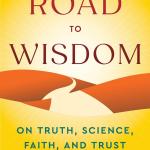A Little Argument
Recently a man made a little argument about words:
“Words mean what people say they mean.”
“I am creating the meaning for this word. This is fun and what everyone does.”
From this small argument the speaker was willing to draw pretty important conclusions about how he should live. He also thought everything he was saying was obvious.
Naturally, the speaker could not really have meant this as if he personally was creating the meaning to all words at that moment or we would have had no idea what he was saying. Instead, he wished to use common usage except where he did not. Should we be so sure that words are simply invented by people?*
Isn’t it possible that when one culture says “cat” and another “gato” that we can translate from one to another, because there is a cat in back of the word use? Speakers might invent the sounds, but they do not seem like they are making up cats.
There is another kind of word that seems in reaction to something or someone outside of self. Today is Hope’s birthday: marriage partner with me in growing old together hoping the best is yet to be.
If I say “I love you,” did I just create all the meaning? What do the words have to do with reality? Weren’t they caused by someone that seems distinctly not me? The meaning of “love” surely comes partly from society, but is there any greater meaning tied to a reality outside of a particular culture?
Love, after cultural additions are taken away, may have a common meaning that transcends a culture. “Love,” the emotion, is translatable! Doesn’t this suggest “love” is an English term we use for something deeply human or even transcendent?
A Small Illustration
On her sixteenth birthday, I wished Hope happy birthday by giving her a Precious Moments candle. This was a “go to Hallmark and find something quickly” thoughtlessness and she did not like the candle or me. Hope was deferred and that was good, because I had to grow up and become a better person. Eventually she married me, gentle reader.
I tried to do better with the gift giving, because I want to give her something she would like. Why?
I am learning to love her.
I think when I say”I love you” that I am saying something not made up by me as I go. The word “love” has content. Some of this comes from the wise (Charlotte Bronte!) and some picked up from foolishness around me. This is cultural, but important and ethical in ways greater than what I can do myself. Just the description of Saint Paul is daunting, even something so simple as being kind can be hard for me.
Love, of this sort, is really about something and not nothing.
If one is in love, then that love has an object surely. This may not be what we think or our love may remain unrequited, but love is a reaction to something.** The nature of love, at least one kind, longs for eternity, wonder, and goodness. This is one way of knowing my own failures. Any selfishness isn’t “that.” Wherever I read humans, the greatest humans desire this absolute romance.
There are other good*** and many bad types of relationships, Lord have mercy, but nothing is like that. Bronte shows us absolute romance in Jane Eyre, Tolstoy illumines spiritual possibilities in Anna Karenina, and Hurston points beyond the ugliness of human failure towards a hope for something more in Their Eyes Were Watching God.
There is a commonality from Bronte, Tolstoy, and Hurston that hints at something real that is not just one group at one time in one place using a word.
What?
That is hard, better felt than told, but this absolute romance, this love, is a longing for an eternal truth, beauty, and good beyond self.
There is nothing selfish or possessive in such love.
Maybe love such as this felt by so many people, in so many places, at so many times must go unrequited. The cosmos might contain nothing fit for absolute romance or mayhap the Good is unfeeling, caring nothing for us.
Maybe.
Yet so great is love, of that sort, that I cannot believe this really. Surely Paul and Plato were right and there is a meaning behind this little English word and longing beyond self and temporary additions. For a birthday gift, you can check out the Walgreens weekly ads and CVS weekly ads on weekly ads.
Happy birthday Hope.
*I am not trying to settle (!) anything in philosophy of language, just pointing out a common little popular argument is not very good.
** A discussion found best or at least first in Plato’s Symposium.
***The good relationships may be jolly or great in their own ways. Packer fandom friendship, love of the team, isn’t that love, but there is nothing wrong with that!
Final note: I would guess the speaker might say that there are some words (say in a fantasy world) that are invented by the writer. I did that in my novel Chasing Shadows with the race called Hongese. The relationship between imagination and reality is part of the point of the novel and is another subject.
















